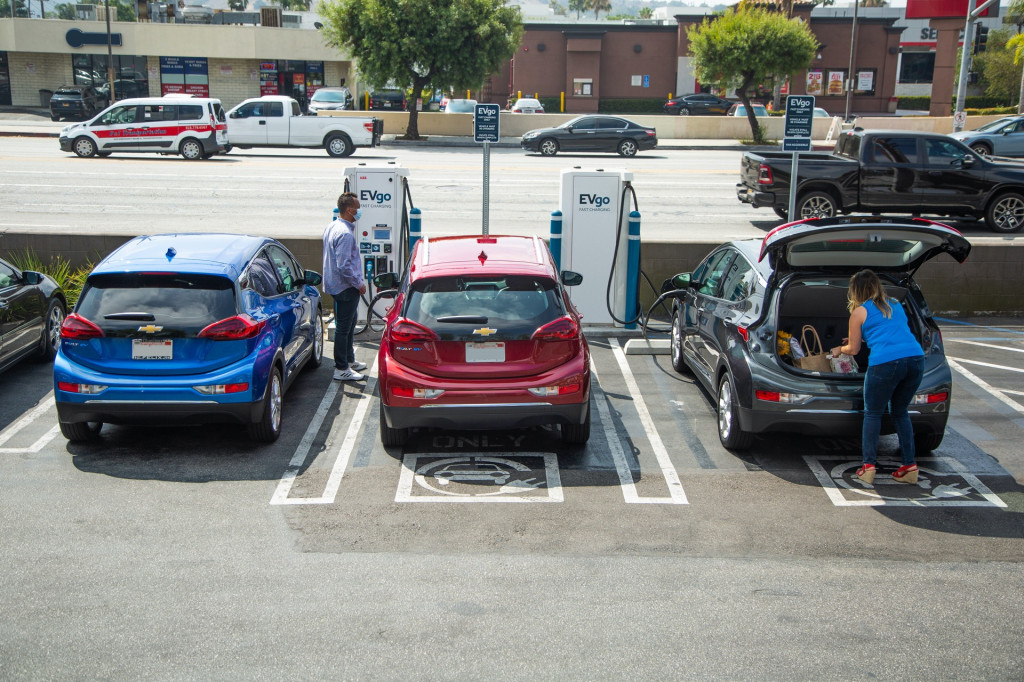The vast majority of electric vehicle owners do most of their charging at home.
While that’s a point of continuity from the pre-pandemic world to the present, much else has changed. According to a survey released Thursday by the PlugShare Research, EV owners are using public chargers a lot less.
Among 53% who responded that they're charging less now than before the pandemic, there was a 67% decline in public charging use versus before the pandemic. The portion of drivers reporting doing the majority of their charging at home, on the other hand, has risen from 75% pre-pandemic to 84% now.
Meanwhile, commercial charging companies have continued to build out their networks. Comparing March 2019-August 2019 with the same period in 2020, PlugShare Research found that new DC fast charging locations were only down 3% versus last year—with a noteworthy surge in activity in August.

GM and EVgo expand major-metro fast charging
Additionally, a number of important DC fast charging openings and announcements have happened in the past six months—including Pasadena’s largest public fast-charging station in the U.S., a GM DC fast charging network expansion with EVgo, and a push for the use of more mobile-charging solutions to help fill gaps.
One noteworthy slowdown has been in public Level 2 chargers—down 11% year over year, although that number had already been dropping in favor of DC fast charging installations.
During that time overall plug-in vehicle sales will have been down roughly 18%.
As the record-low driving (and gas prices) over Labor Day can attest, families aren’t quite yet back in road-trip mode at anywhere close to pre-pandemic levels.
Public charging networks are likely feeling the pinch. However, once unexpected errands and runs to after-school activities resume, and families make more weekend road trips, the demand to charge on the go should bounce back as well.
The results are based on a survey of 927 U.S. electric vehicle drivers over Labor Day weekend, conducted by PlugShare Research.
--
This story was updated to clarify that the 67% drop in public charging was within the subset of respondents who were charging less now than pre-pandemic.













